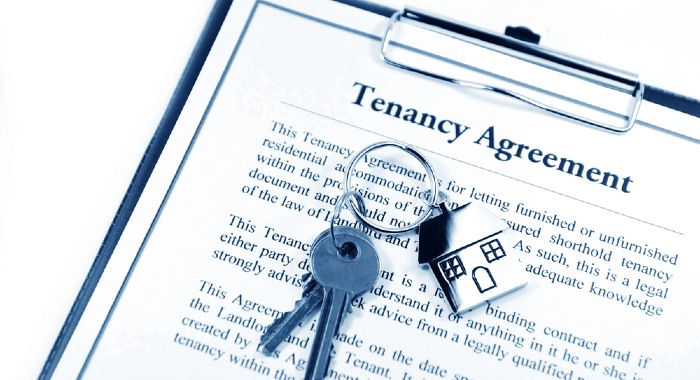Do you have a rental property and are considering renting to family members? Find out what the UK law in such a case has to say and what to look out for.
Renting a property to a family member is not illegal, but you still need to be aware of the rules and regulations covering tenancies.
There’s no doubt that renting a property as a landlord can be a stressful experience.
What with missed rent, finding quality tenants and maintaining a rental property means this tends to be a more time-consuming undertaking than many property investors appreciate.
For this reason, it may be tempting as the landlord to simply rent the property to friends or family because these are people that you already get on with.
However, you will still need to remain on the right side of the rules and comply with relevant laws – including paying tax on your rental income.
At this point, we must highlight that the information in this article should not be taken as legal advice, and you should always speak with a legal professional before renting a property to a family member.
Legal aspects of renting to a family member
So what does the UK law say about renting your property to family members or friends? In short, nothing.
You are free to rent your flat or house to anyone you want, including family members or friends. So far so good.
However, you still have to adhere to the rules and regulations that govern the private rental market. As a landlord you have certain responsibilities and obligations, which will also apply if your tenants are family members or friends.
It’s advisable to treat members of your family or friends just as any other tenant. This will ensure that you stay within the law and prevent issues for you and your family members.
While it’s not illegal to rent a property to family members, there are some things you should be aware of and consider.
Renting to family members when you have a mortgage

The first thing to consider is how you own your property. If you own it outright, you are free to rent your house or flat to anyone you want, including family members.
However, if you have a mortgage, things can get a bit more complex.
Firstly, you will need permission from the mortgage lender if you are looking to rent out the property to any tenants, not just family members.
If you have a buy-to-let mortgage, the lender will expect you to rent out the property. But you will still have to inform them if the tenant is a family member. Most lenders will have policies in place about landlords renting to members of their families.
You might find that the lender will impose stricter lending criteria, if you are planning to rent to family or friends.
A mortgage lender may refuse permission for a borrower to have tenants who are family or friends in the home they have bought using a mortgage. And this may extend to a buy-to-let mortgage lender as well because of the risk involved.
But why would a mortgage lender look at family and friends renting a property, differently from strangers?
There’s a very simple explanation, and most potential landlords will already appreciate what it is.
Put simply, a lender may believe:
- You may be more lenient with a family member as a tenant than a stranger
- If the family member is not a responsible tenant, you may have issues imposing rules and even evicting them
- The lender may believe that you will charge less than the market rate to a friend or family member
The bottom line is the lender may be worried about issues affecting how much you earn from the property. Therefore, it’s always a good idea to speak with your lender about their criteria when it comes to renting to family and friends – and you should do this before you promise the property to someone.
Tenancy agreement for renting to family

When renting to a friend or family members, you might be tempted not to draw up a tenancy agreement. After all, your brother, cousin, aunt or friend won’t cause you any issues, so there is no need for all this paperwork, right? Wrong!
You should always use a tenancy agreement when renting anyone, including a family member or friend.
A tenancy agreement puts in writing what’s expected from the tenant and from you as a landlord. The agreement also makes clear what the rent is and when it needs to be paid.
A tenancy agreement will also help deal with potential disagreements in the future. This might never happen, but even close-knit families aren’t immune to problems and quarrels. Better to be safe than sorry.
A tenancy agreement is a crucial part of renting to a family member. It will:
- Lay down the responsibilities and rights of the tenant and the landlord
- The landlord and tenant will need to sign this agreement
- As a legal document, it will help prevent any misunderstandings or even difficult conversations when your tenant becomes less than a model tenant
It’s a good idea to have an inventory carried out, so the condition of the property is recorded, as well as its contents before your family member moves in as a tenant.
Deposit when renting to friends or family
The tenancy agreement will also make clear that you are requesting a deposit and that this will be used to pay for any damage.
As a landlord you don’t have to ask for a deposit. So of course, you don’t have to ask one from a family member you are renting to. However, you should consider carefully before you decide not to require a deposit from your family members or friends.
The main reason why landlords will ask for a deposit is to pay for any damage or lost items when the tenancy ends. And while you might not expect a family member to cause any damage or lose your things, do you really want to risk it?
If you decide to request a deposit from a family member or friend, remember landlords must:
- Place their tenant’s deposit into a government recognised deposit scheme – this is a legal requirement
- As the landlord, you must tell your tenant where their deposit is being held
- The tenant must be informed of where their deposit is within 30 days of moving in
Placing the deposit with an independent third party makes it easier for the tenant to get their deposit back after leaving the property.
Also, you should read the Tenant Fees Act 2019 because landlords are restricted from charging tenants for some damage including wear and tear issues.
Tenant referencing for a family member

We’ve mentioned before that while you may know and trust a family member or friend, it’s still worth carrying out tenant referencing.
As a professional landlord, this is a process you would do because you are about to enter a legal agreement.
A tenant referencing process will reveal whether the tenant can afford to pay the rent, and you’ll find out how well they got on with a previous landlord.
Rental prices for family members and friends
There are different reasons why you might want to rent to a family member or friend. Maybe you want to know your property is in good hands. Maybe you want to help out a family member in need.
If the latter, you might want to offer your rental at a favourable price. Can you do that? Technically yes, it’s up to you what you charge your tenant.
However, as we have already highlighted, mortgage lenders tend to be wary when a landlord rents a property to a friend or family member.
A buy-to-let mortgage lender will usually insist that the rent you charge is at least 120% of your monthly mortgage payments.
This may mean that as a landlord you’re in no position to offer family or friends a discount on the rent – and the lender won’t allow you to let them live in your property for free.
The other issue about offering a discounted rent to a family member is when you need to increase it at a future date.
This can be something of a financial minefield because when money is involved, relationships can become strained.
If you own the property outright, then you can do what you like with it and give a family member or friend a discount on the rental price.
You may decide to go one step further and offer the property on a rent-free basis, but be aware that there may be some tax implications when doing so. It’s worth reading HMRC advice on this subject of renting property to family members.
Tax implications when renting to family or friends

All rent paid by a tenant is deemed as income which will be taxed – minus the landlord’s costs and overheads. So it doesn’t matter who you rent your property to, you will have to pay tax on this rental income.
Depending on how many properties you are renting out and how much money you make, you might be liable to Income Tax as well as National Insurance Tax. There might also be some allowable expenses that you can deduct from your tax bill.
It’s a good idea to secure the services of an accountant with experience in dealing with rented properties to ensure that you keep accurate financial records and pay any tax due.
Renting to a family member on Universal Credit
There’s nothing to stop you as a landlord from renting your property to a family member who is claiming Universal Credit, or housing benefit.
However, you will need to have a formal agreement in place, and you must not live with them.
What happens to a family tenant when I die?

While this subject is not one that many people, let alone landlords, want to discuss, it’s an issue to confront.
If you are renting a property to a family member or friend, you need to discuss with them what will happen when you die.
That’s because the terms of your will may mean they have to move out. Speak to your solicitor to make sure that things will happen as you wish once you have passed away.
Maintenance
As the landlord, you are the one responsible for maintaining the property to be a safe and comfortable dwelling. Do not avoid this responsibility even though it’s a family member or friend living as a tenant in your property.
Landlord insurance
Regardless of how well you get on with your friend or family member, it’s important to have the right landlord insurance in place.
This will protect you against legal costs, property damage and any missed rent payments – though landlord insurance comes with various levels of cover, so you need to check properly before signing up to deal.
Conclusion – Renting to family members
There are many reasons why you might want to rent your property to a family member or friend. There isn’t a law that would stop you from doing so, but you should consider some things.
To make sure that this arrangement doesn’t sour your relationship with the person, treat them as you would any tenant. This means drawing up a tenancy agreement, asking for a deposit and carrying out tenant referencing.
If you have a mortgage on the property you are intending to rent out to family, check with your mortgage lender. They might switch you to stricter lending criteria and might even dictate a minimum rental price you have to ask.
You should be aware that many mortgage lenders, even buy-to-let ones, aren’t too keen on you renting to family or friends, as it increases their risk.
Should you own the property outright, you don’t have to worry about this. In this case, you can even give your family a discount on the rent.
Before committing to renting a property to family and friends, speak to a legal professional to ensure you understand all the implications this will have.




